Knowing Where One Belongs: A Reflection on Management and Leadership
VerifiedAdded on 2022/10/04
|5
|1047
|196
AI Summary
This article reflects on the importance of knowing where one belongs in the environment and how it can transform an ordinary person into an outstanding performer. It also discusses the author's goal of attaining a leadership position in a reputable organization and an action plan to improve their communication, confidence, understanding, and influence skills.
Contribute Materials
Your contribution can guide someone’s learning journey. Share your
documents today.
1 out of 5
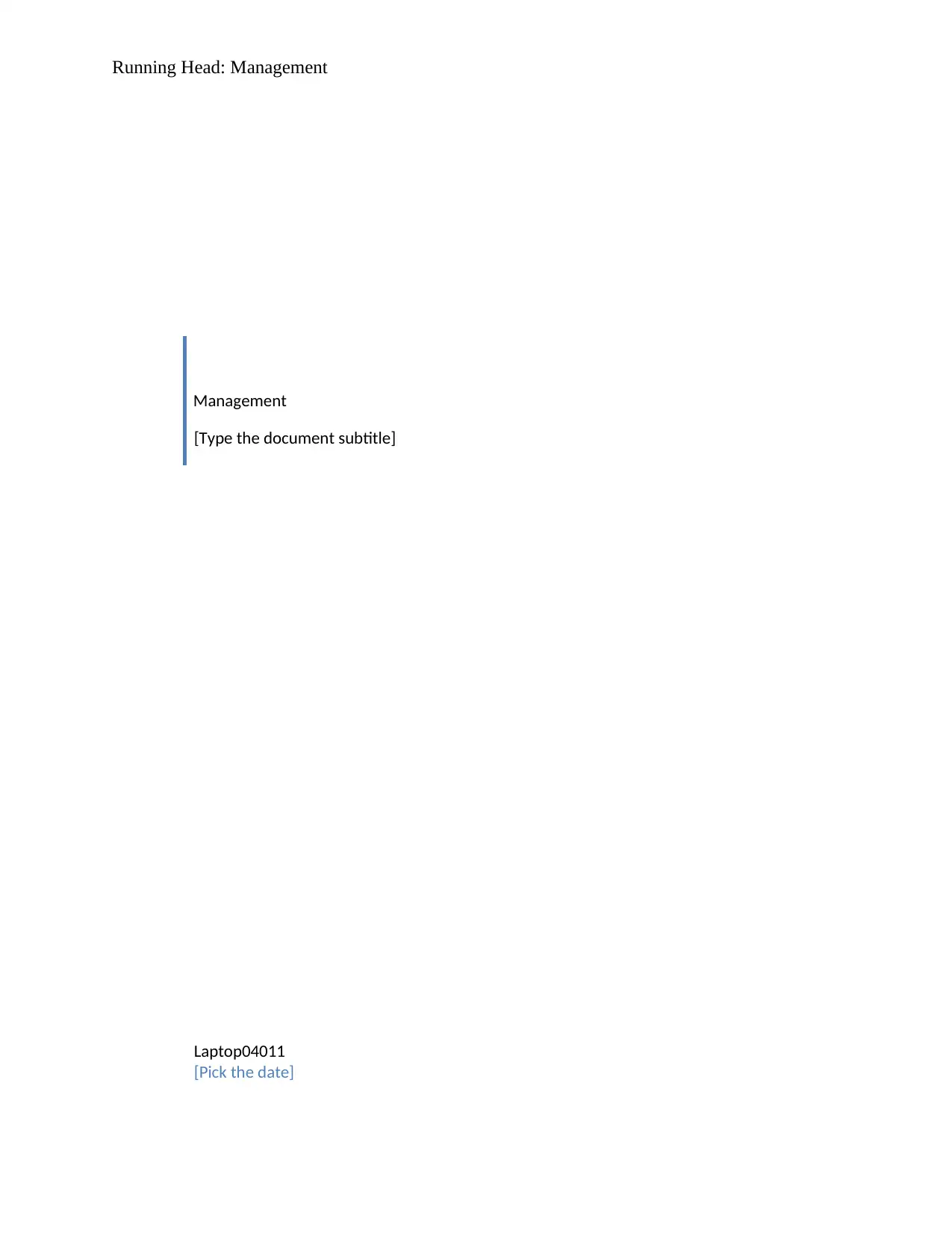
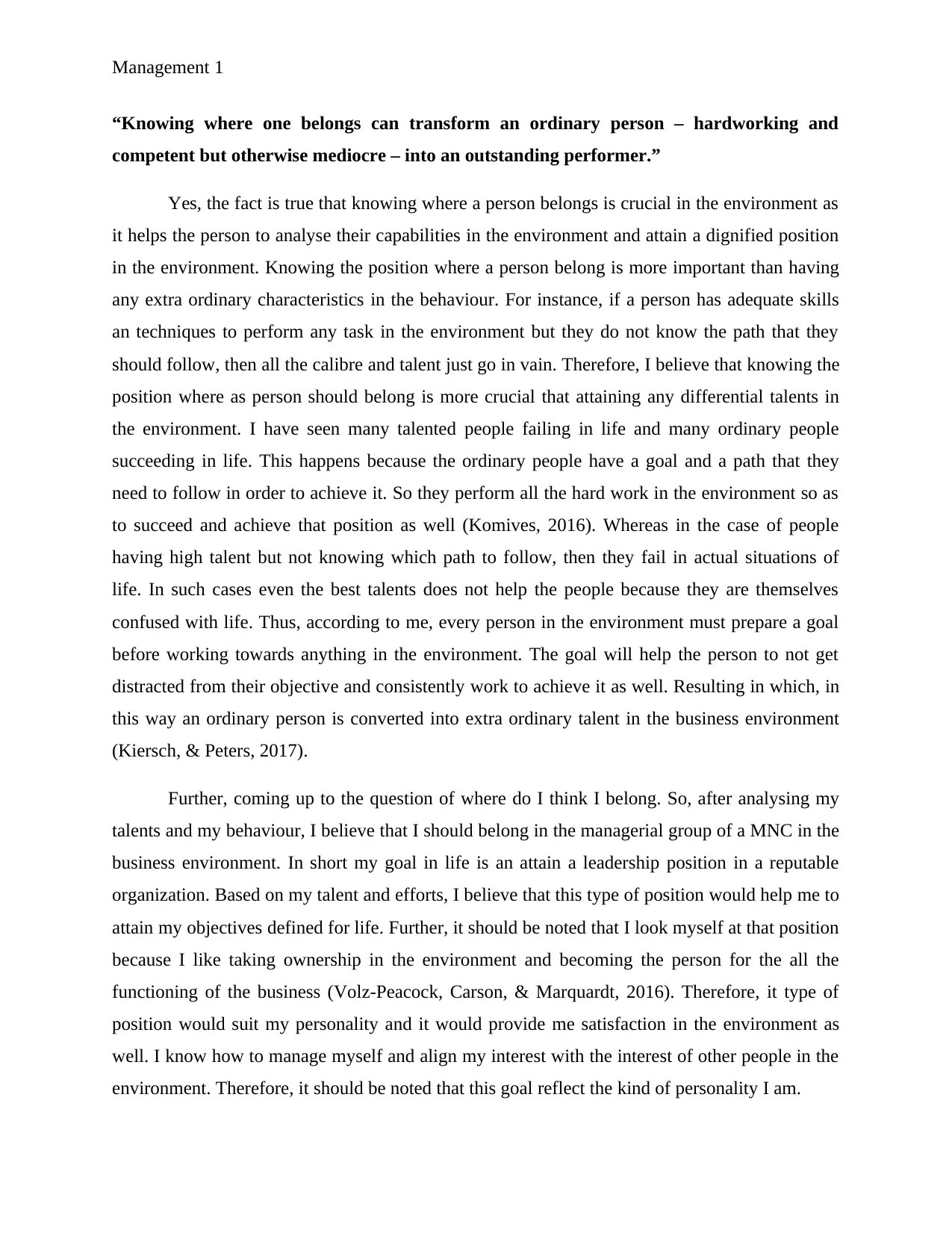
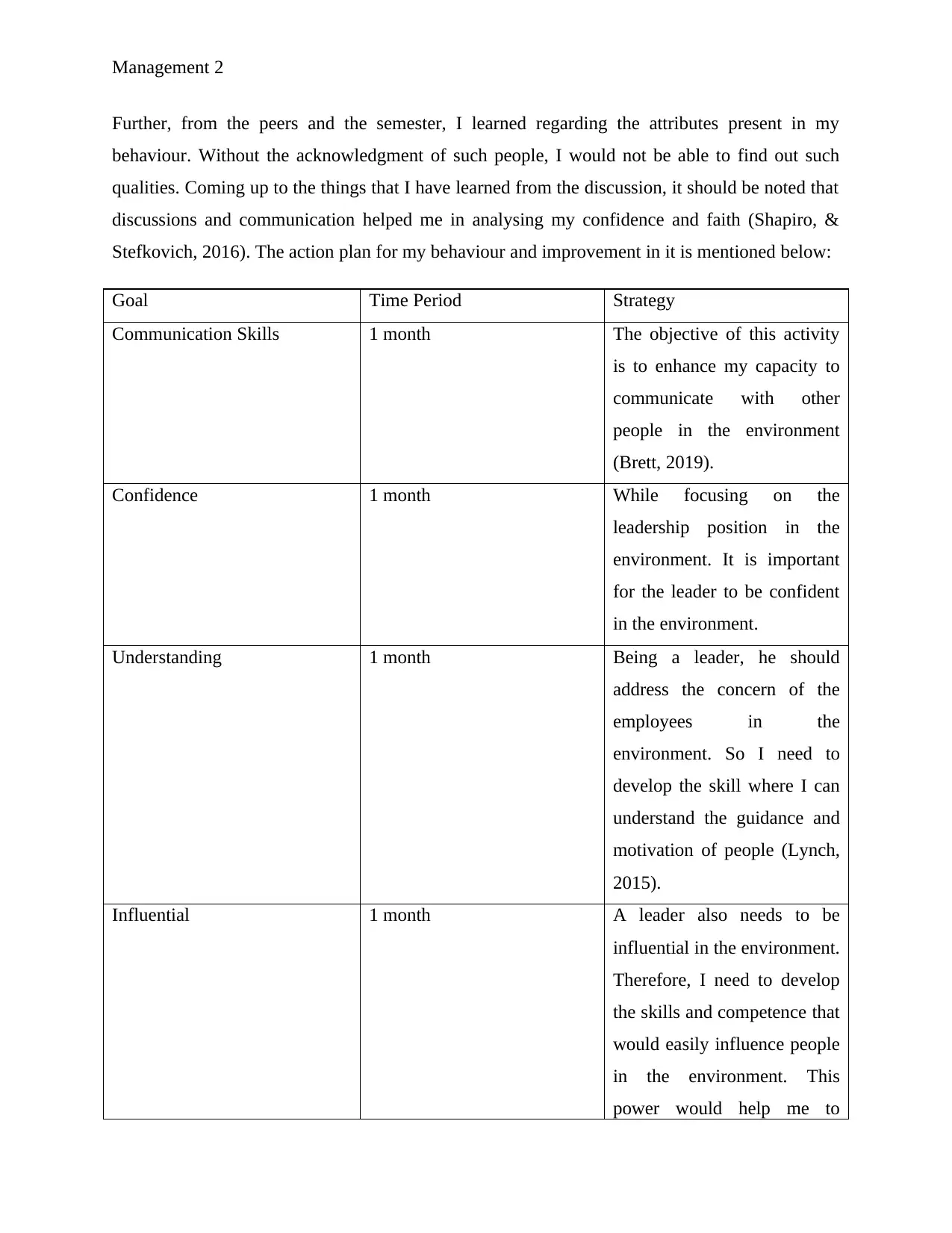
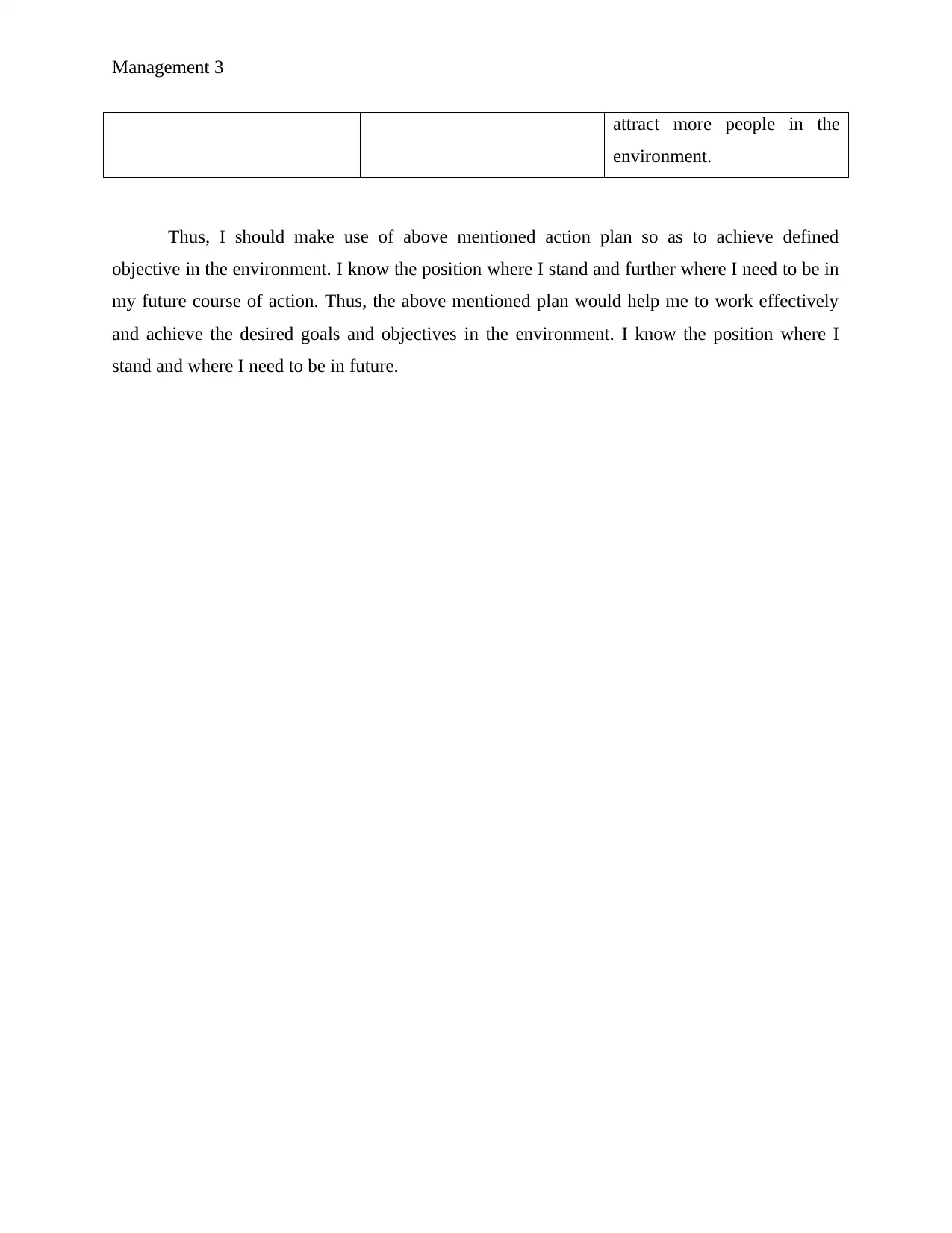
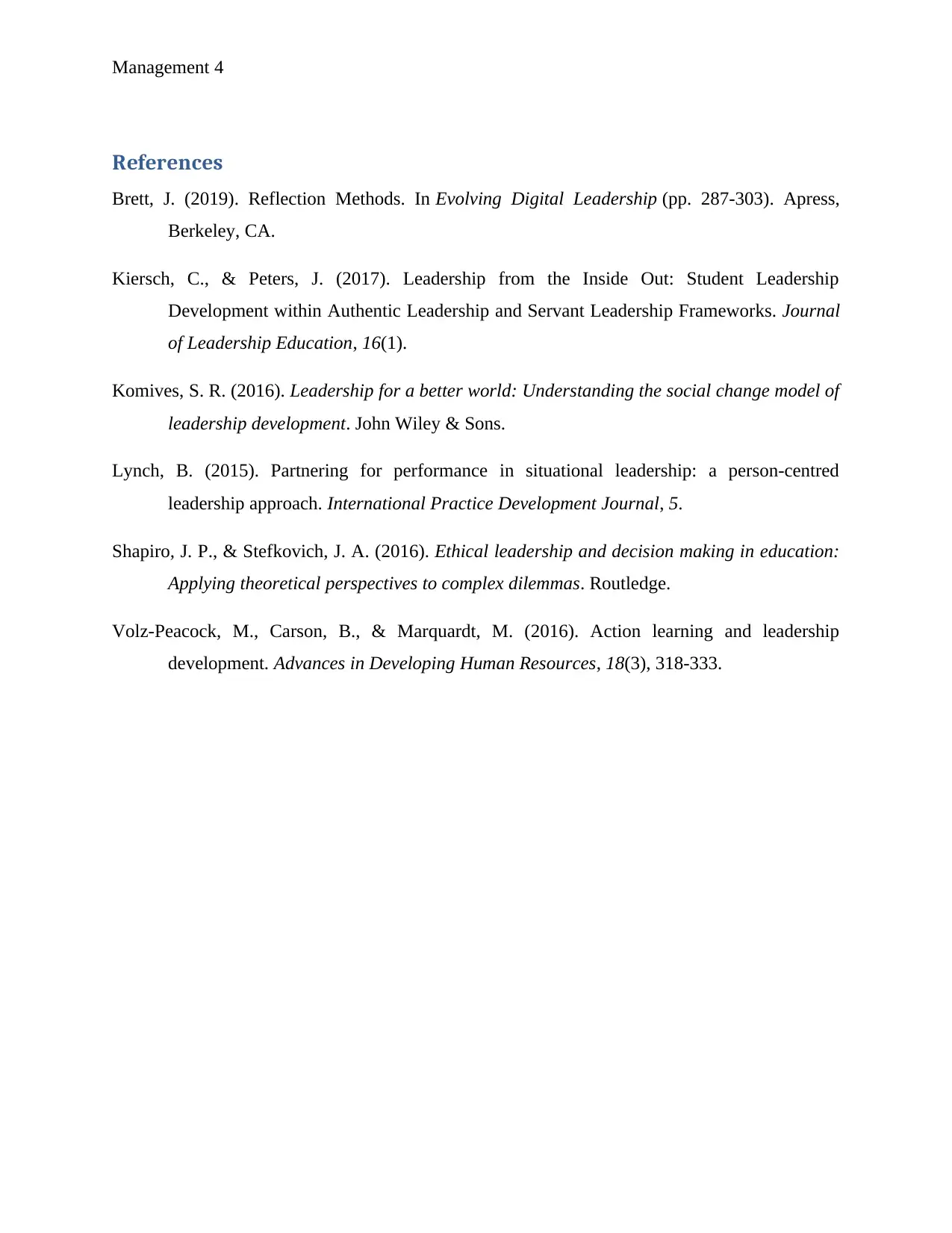






![[object Object]](/_next/static/media/star-bottom.7253800d.svg)